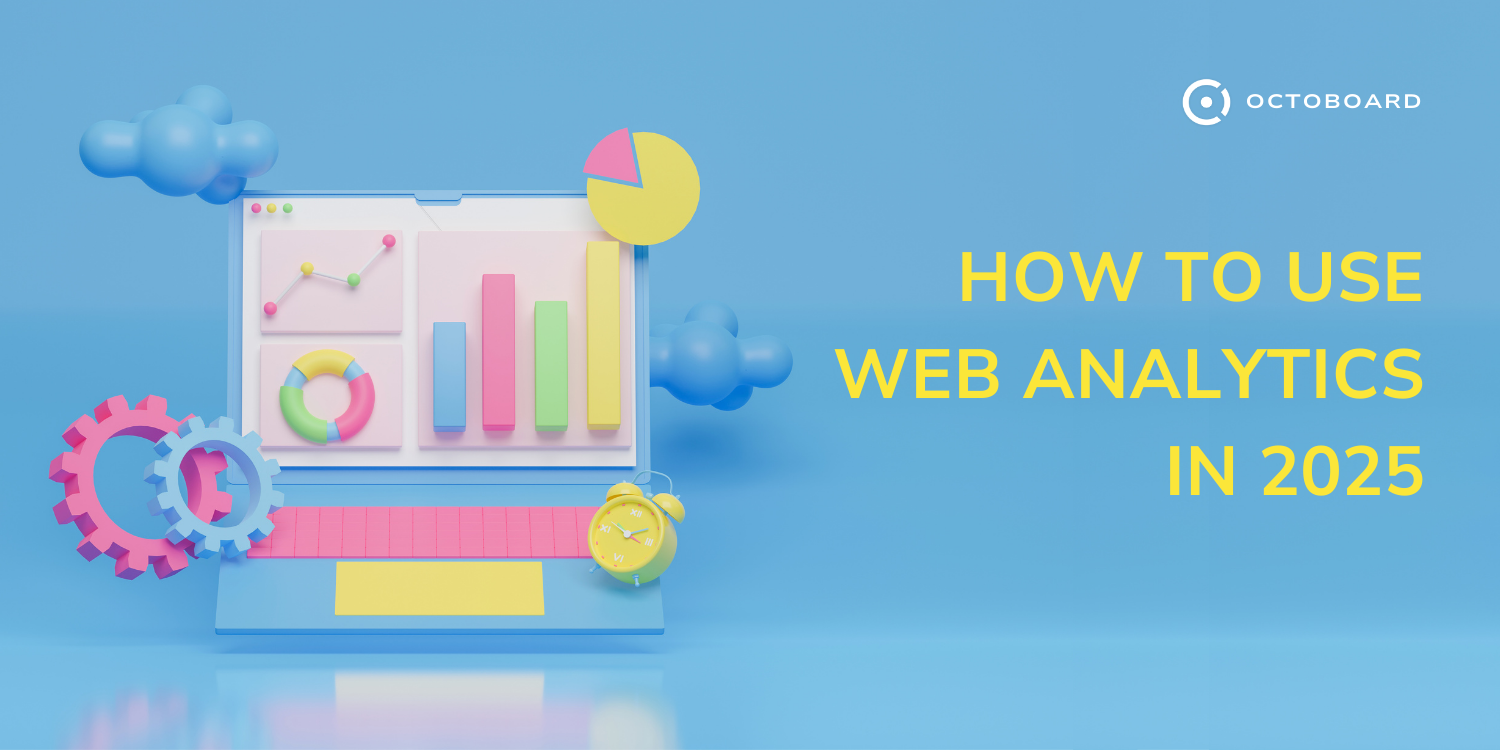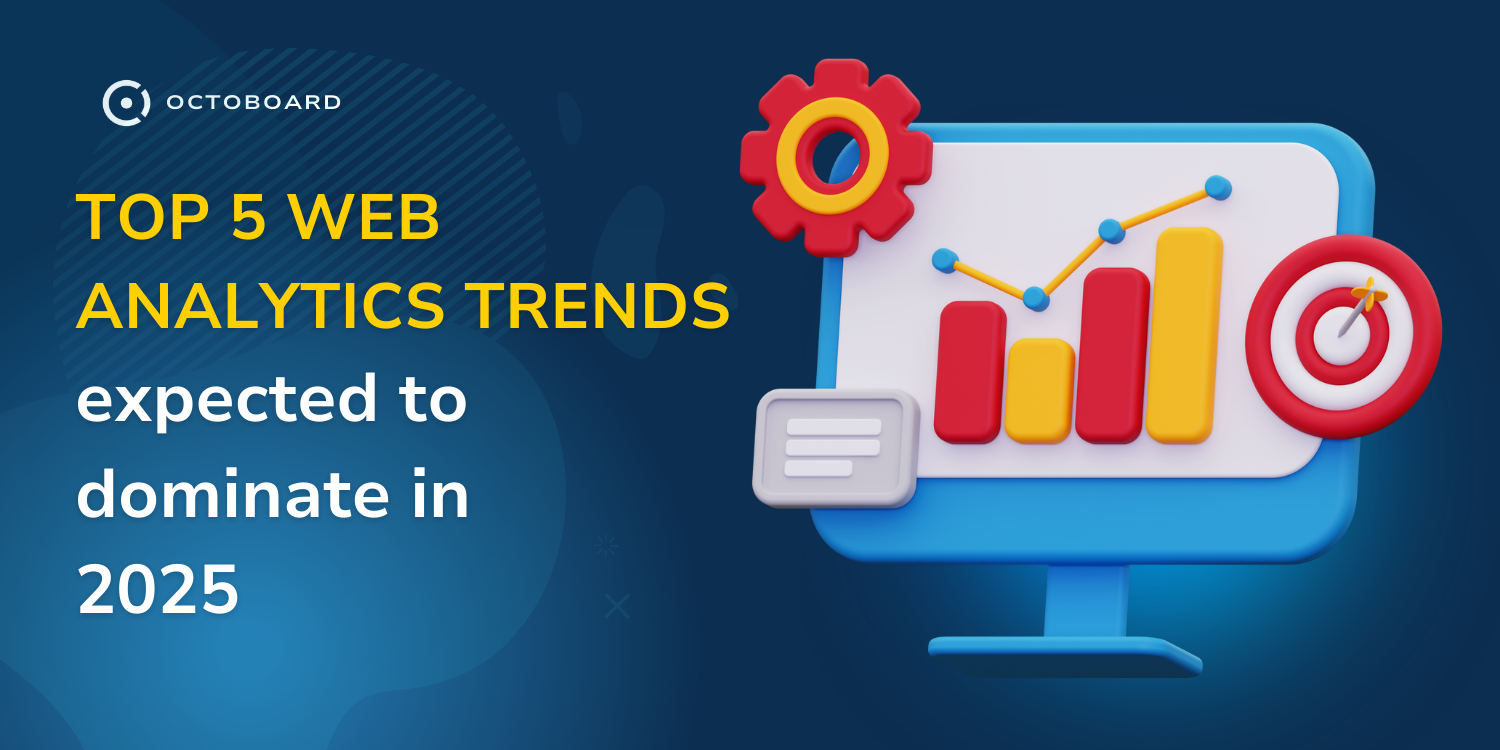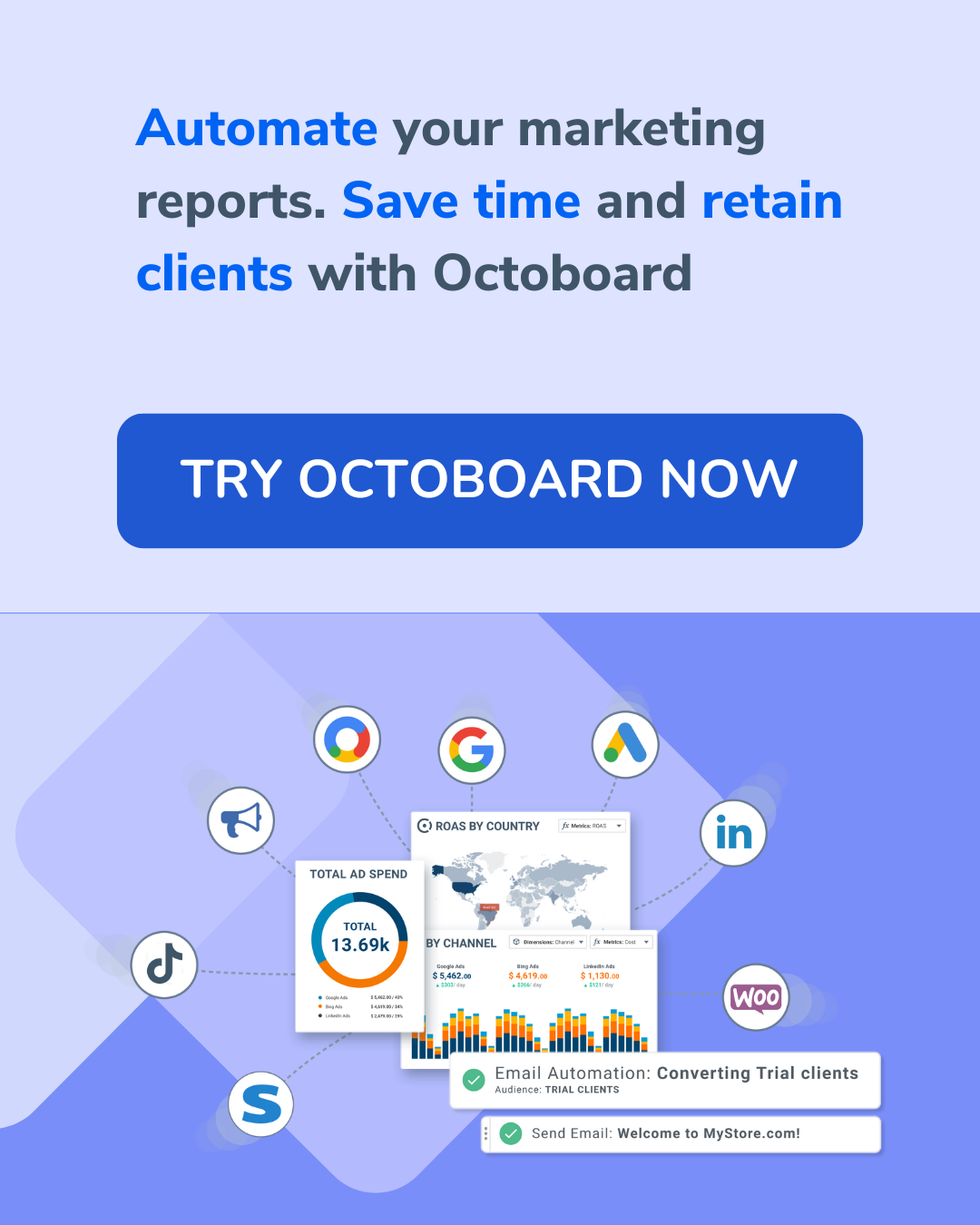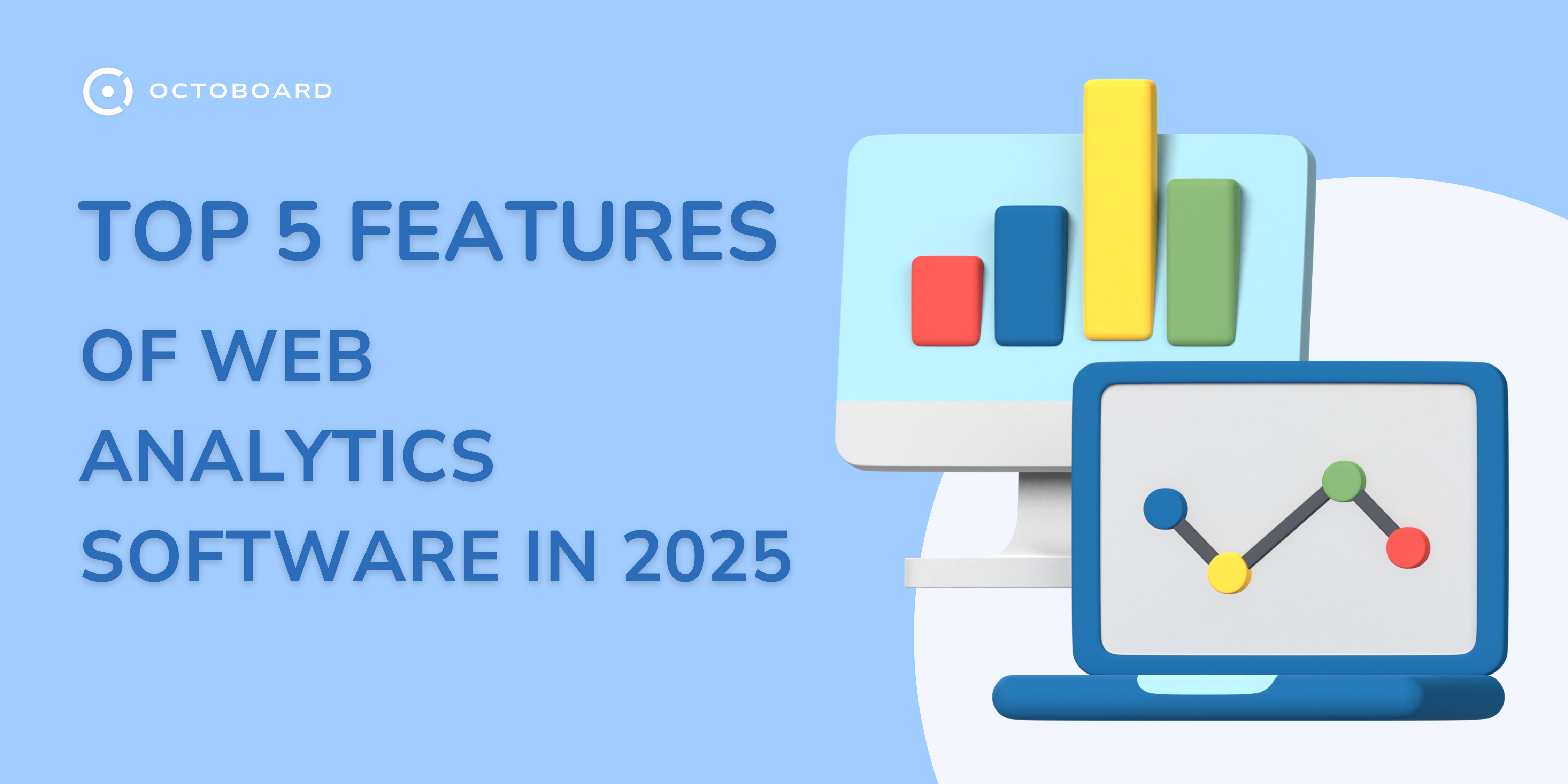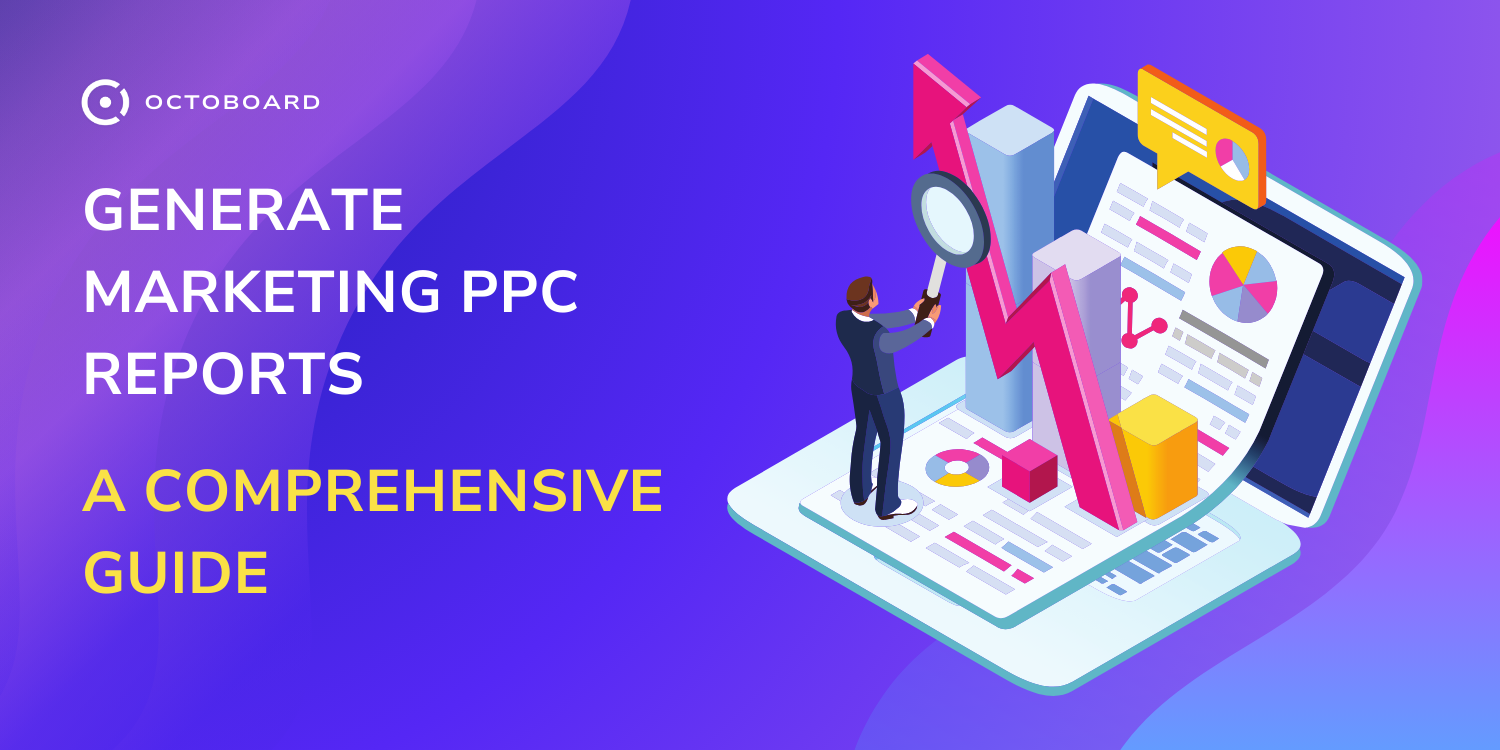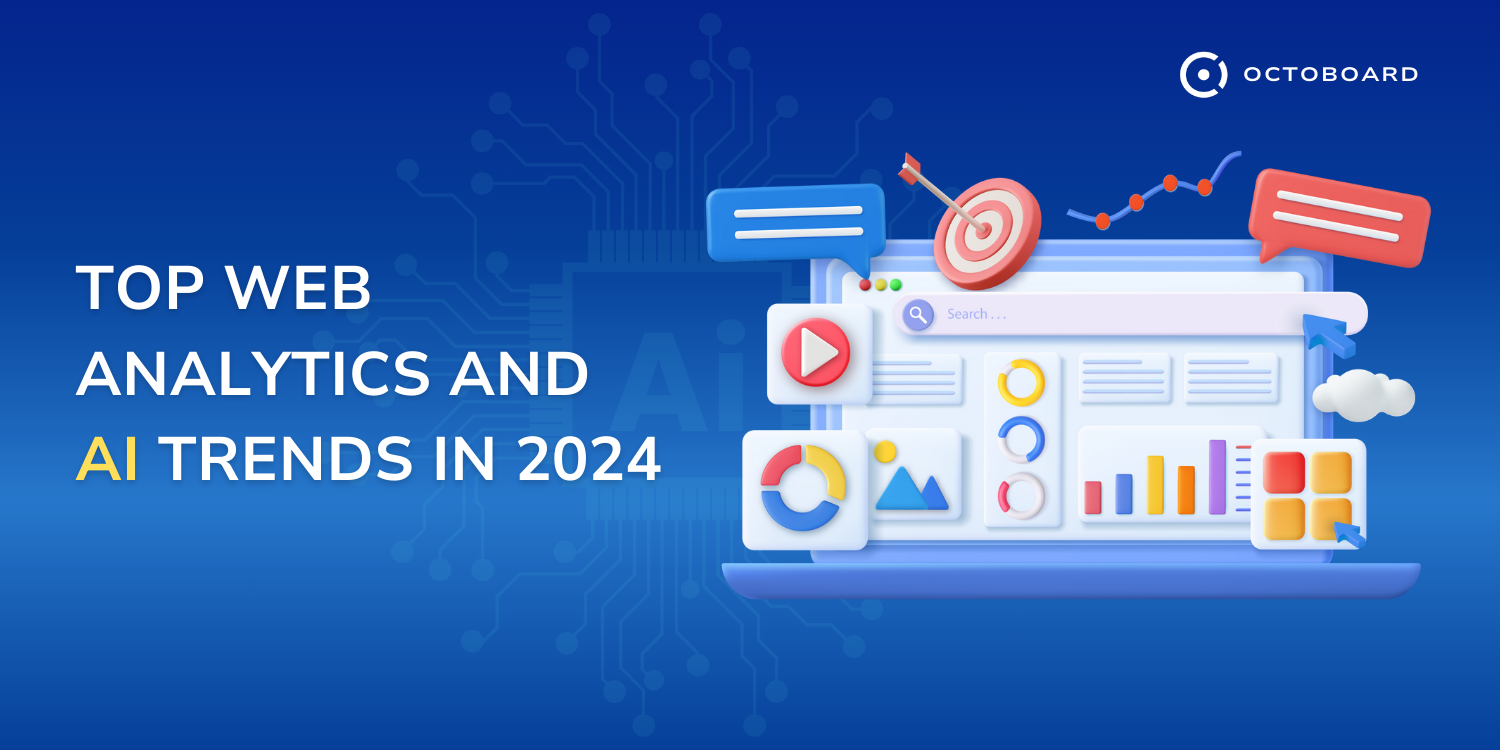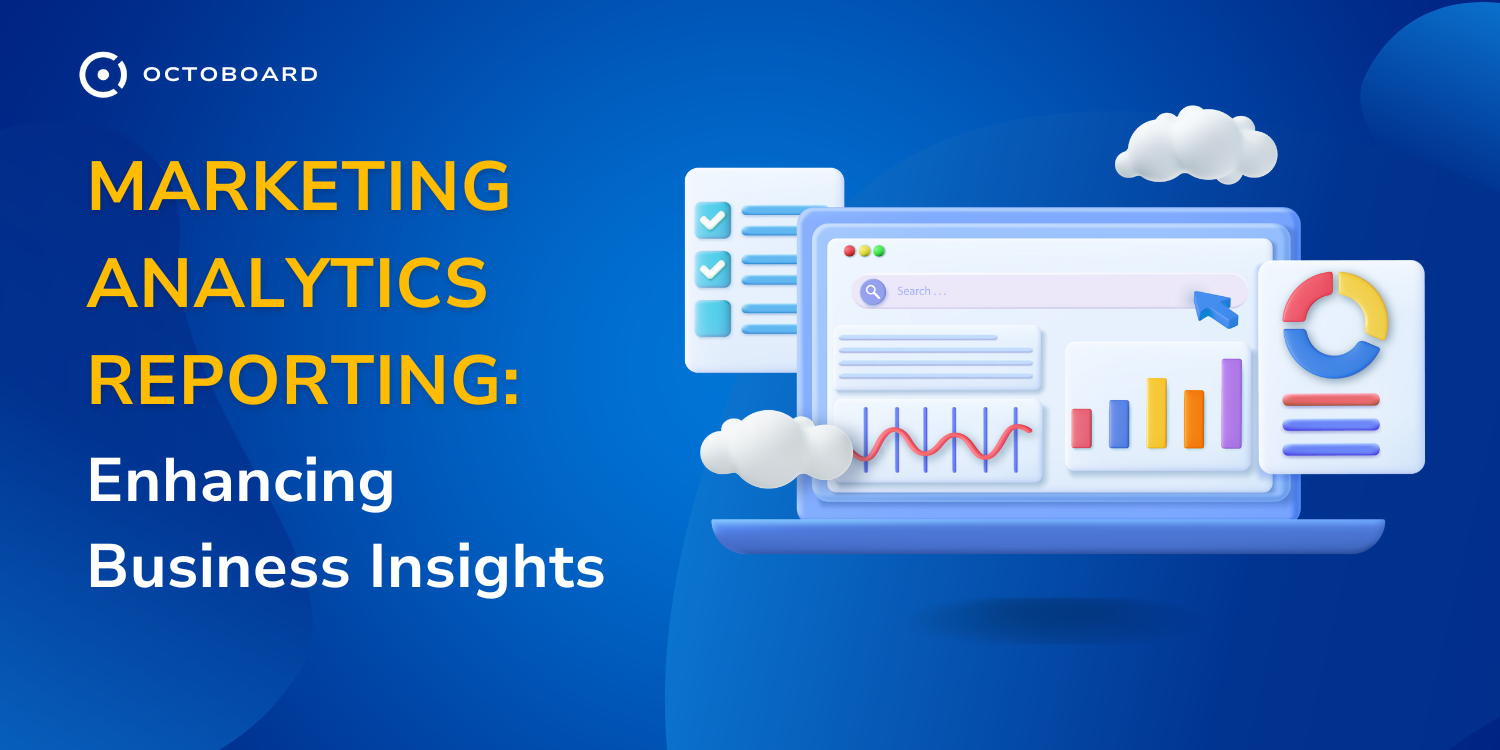How to automate SEO reports for marketing agency clients

SEO reports are essential tools for marketing agencies to track, measure, and optimize their clients' online performance. These reports provide valuable insights on key metrics like keyword rankings, organic traffic, backlink profiles, and on-page optimization. By analyzing this data, agencies can identify trends, spot opportunities, and address potential issues impacting online presence.
- Key Metrics for Inclusive SEO Reporting
- Simplifying SEO Reporting with Automated Tools
- Customizing SEO Reports for Different Client Needs
- Efficient Data Collection for SEO Reporting
- Using the right visualizations in your SEO reports
- Competitor Analysis in SEO Reports
- Importance of Keyword Performance Tracking
- Organic Traffic and Ranking Reports for Marketing Agencies
- Simple Tips for Effective Backlink and Link Building Strategies
- Optimizing SEO Reporting: On-Page and Off-Page Metrics
- Streamlining Technical SEO Audits and Recommendations
- Benefits of Automating Report Delivery and Scheduling
- Improving Client Communication Through Actionable Insights
The primary reason why SEO reports are crucial for marketing agencies is the ability to showcase tangible results to clients. By presenting data-backed metrics, agencies can demonstrate the value of their SEO efforts, building trust and reinforcing their expertise in driving organic growth.
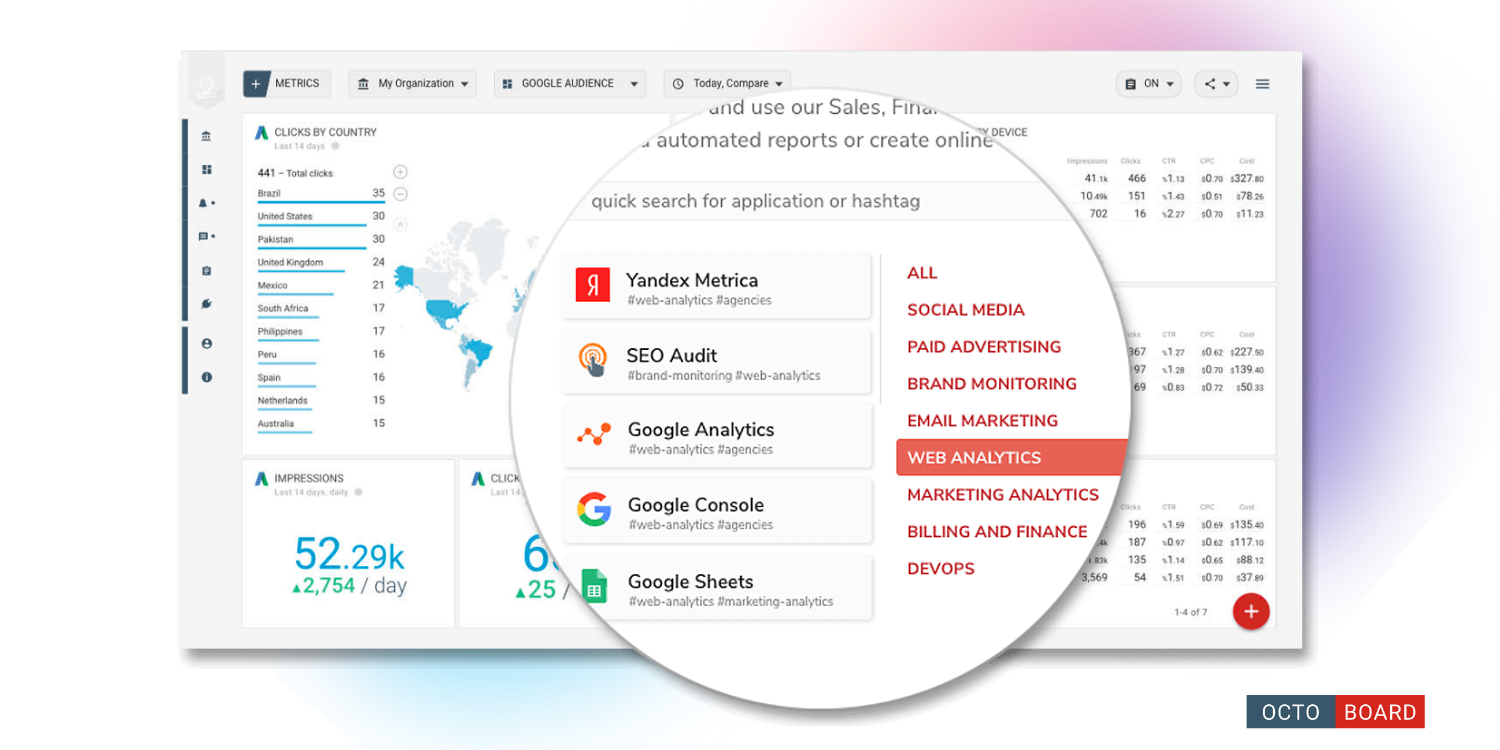
SEO reports help agencies track progress over time and measure the success of optimization efforts. Monitoring KPIs such as organic traffic growth, improved keyword rankings, and conversion rate optimization allows agencies to evaluate strategies and make data-driven decisions for continuous improvement.
SEO reports enhance communication and collaboration between agencies and clients. By sharing performance data, trends, and recommendations, agencies can engage clients in discussions about SEO progress, set expectations, and outline strategies for success. This transparent dialogue strengthens relationships and fosters a collaborative environment focused on achieving results together.

Overall, SEO reports empower marketing agencies to elevate their performance, demonstrate value, drive improvement in strategies, and support clients in navigating the competitive online landscape. Leveraging data-driven insights and actionable recommendations, agencies can showcase expertise, track progress, identify growth opportunities, and optimize strategies for maximum impact. With a strategic approach to SEO reporting, agencies can equip clients with the knowledge and tools needed for online success.
Essential metrics for SEO reports include organic traffic, keyword rankings, CTR, conversion rate, bounce rate, backlink profile, page load speed, mobile friendliness, site structure, internal linking, and social engagement. Including these metrics provides a comprehensive view of website performance, aiding clients in understanding and improving SEO efforts.
Organic traffic reflects visitors from search results, showing the impact of SEO strategies on driving traffic. Keyword rankings help evaluate targeted keyword performance in SERPs. CTR measures user interaction with website links in search results, indicating the effectiveness of title tags and meta descriptions.
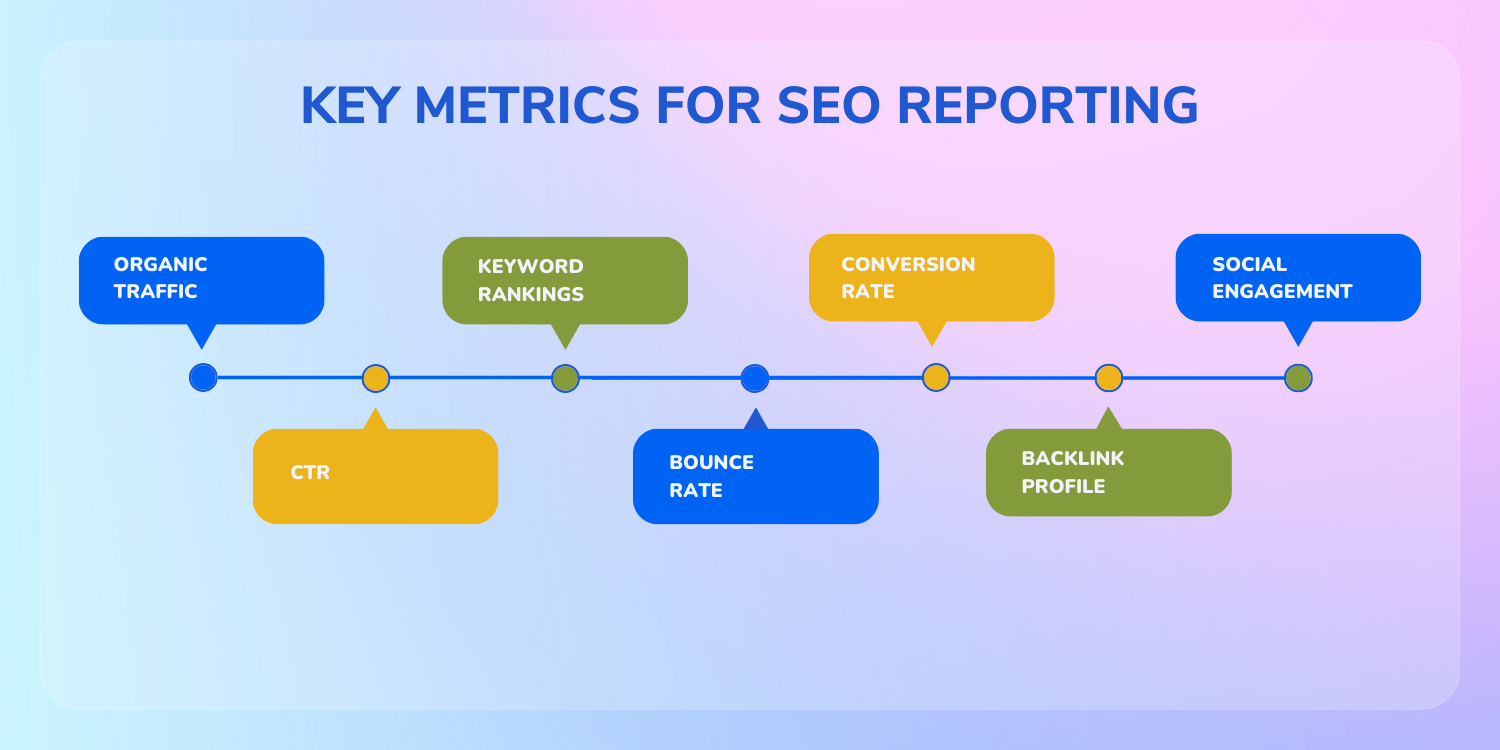
Conversion rate, representing completed user actions, gauges SEO and website optimization effectiveness. Bounce rate, the percentage of single-page visitors, signals potential issues with content or usability. Backlink profile analysis determines the website's authority and credibility in search engines' view.
Page load speed, crucial for user experience and ranking, influences bounce rates and search rankings. Mobile friendliness ensures website responsiveness on mobile devices, a vital factor in SEO success. Monitoring site structure and internal linking aids in enhancing navigation for users and search engine bots.
Including social engagement metrics indicates the impact of likes, shares, and comments on search visibility. Customizing metrics based on client goals enhances the relevance and effectiveness of SEO reporting, facilitating informed decisions for improving online presence. By focusing on these key metrics, SEO reports offer a clear and insightful overview of website performance in search engine rankings, guiding strategic improvements for enhanced online visibility.

When it comes to selecting SEO tools for automated reporting, it's crucial to consider factors like data sources, customizability, real-time updates, automation features, data visualization, pricing, and scalability.
Data integration capabilities are essential for pulling data from various sources like Google Analytics, Google Search Console, SEMrush, and others. Customizable reporting templates allow for tailored data presentation. Real-time updates ensure the most current information for quick decision-making.
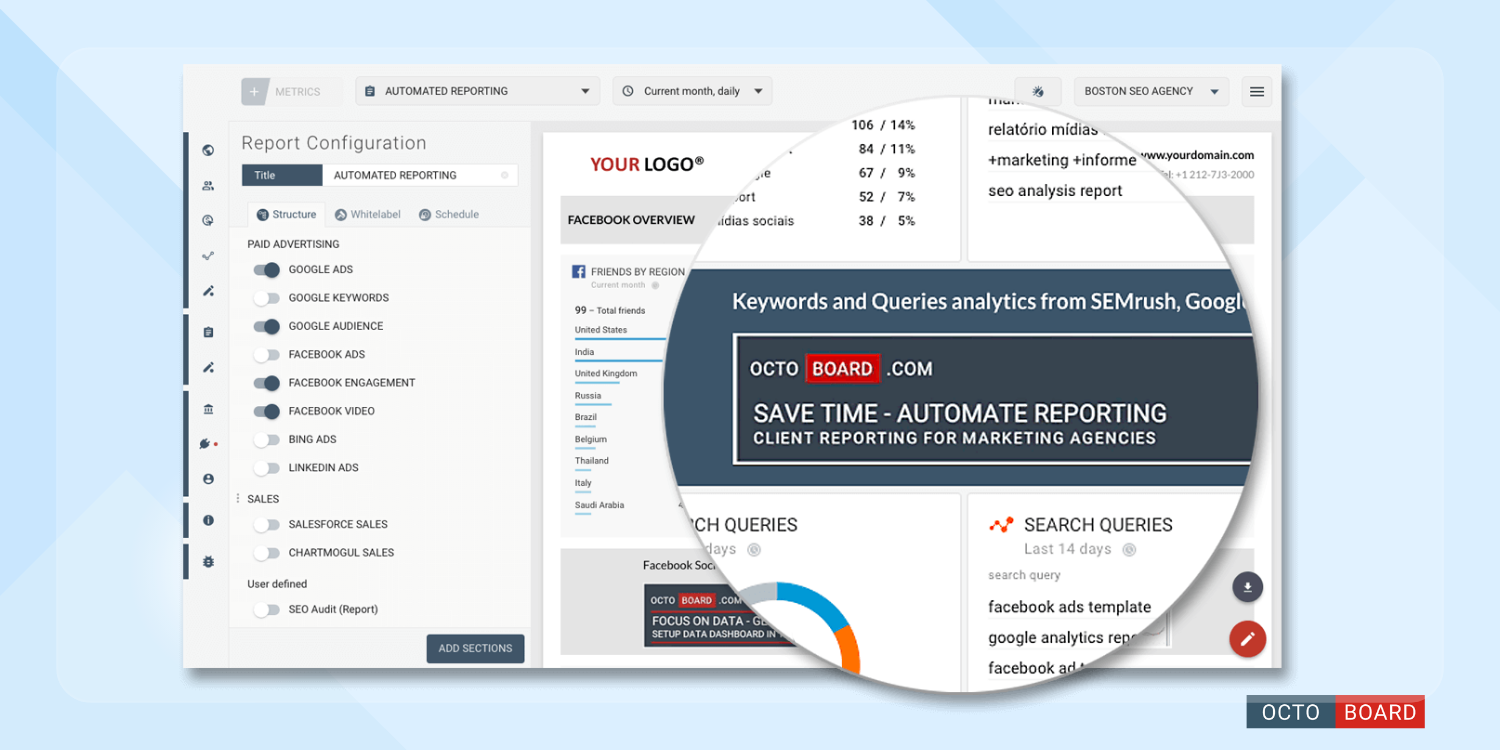
Automation features, such as scheduled report delivery and email notifications, can save time by eliminating manual data collection. Data visualization plays a significant role in presenting data effectively through interactive dashboards and graphs.
When considering an SEO reporting tool, it's important to assess pricing and scalability to align with your agency's budget and growth plans. Some tools offer tiered pricing based on projects or clients, while others have customized options.
Choosing the right SEO reporting tool can streamline the reporting process, enhance data accuracy, and provide valuable insights to clients. By leveraging automated tools, agencies can optimize their SEO strategies, outpace competitors, and drive tangible results in the digital landscape.
When providing SEO reports to clients, a personalized approach is key. Tailoring reports to meet each client's specific requirements is crucial for delivering value and building trust as an SEO expert.
Understanding client needs is the first step in customizing SEO reports. This involves gathering information about their business, target market, current SEO efforts, and goals to align the reports with what matters most to them.
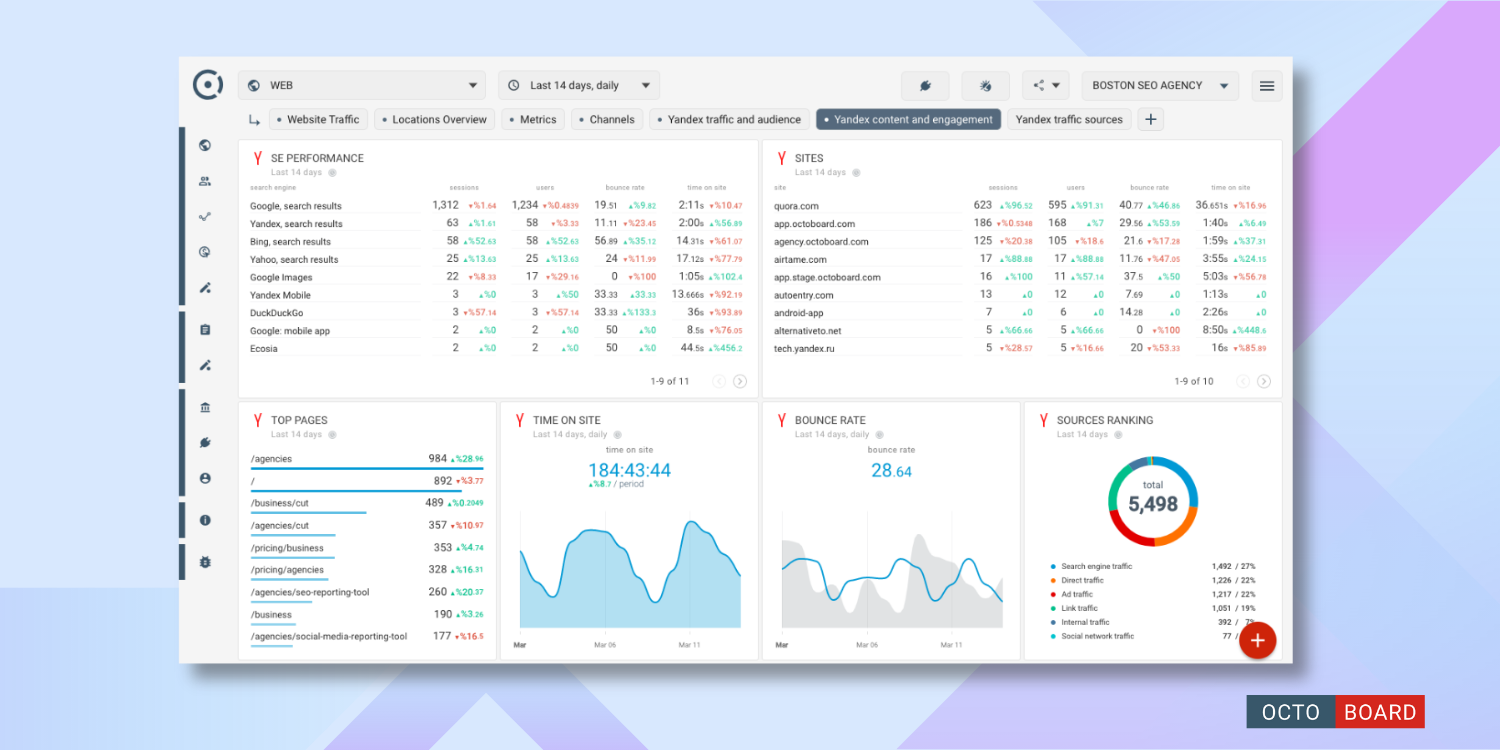
Defining key performance indicators (KPIs) is essential to track and report the success of SEO efforts. These measurable goals, like organic traffic growth and conversion rates, demonstrate the impact of strategies tailored to the client's objectives.
Choosing the right data visualizations is important in presenting complex data clearly. From line graphs to pie charts, effective visualizations help convey insights to clients in an easily understandable format.
Tailoring insights and recommendations based on the data is critical. By providing strategic guidance that addresses the client's specific challenges and opportunities, you empower them to make informed decisions that drive results.
Delivering reports in client-friendly formats enhances the overall client experience. Whether through detailed PDF reports or interactive dashboards, presenting data in a format that is user-friendly and accessible is key to establishing strong client relationships.

Automating data collection for SEO reporting is crucial for businesses aiming to enhance operational efficiency. By setting up automated processes, you can save time, reduce errors, and access real-time information. Identifying key metrics and integrating data sources like Google Analytics, SEMrush, and Ahrefs is the initial step. Octoboard offers a comprehensive SEO reporting platform to automate data retrieval, visualize metrics, and share reports seamlessly.
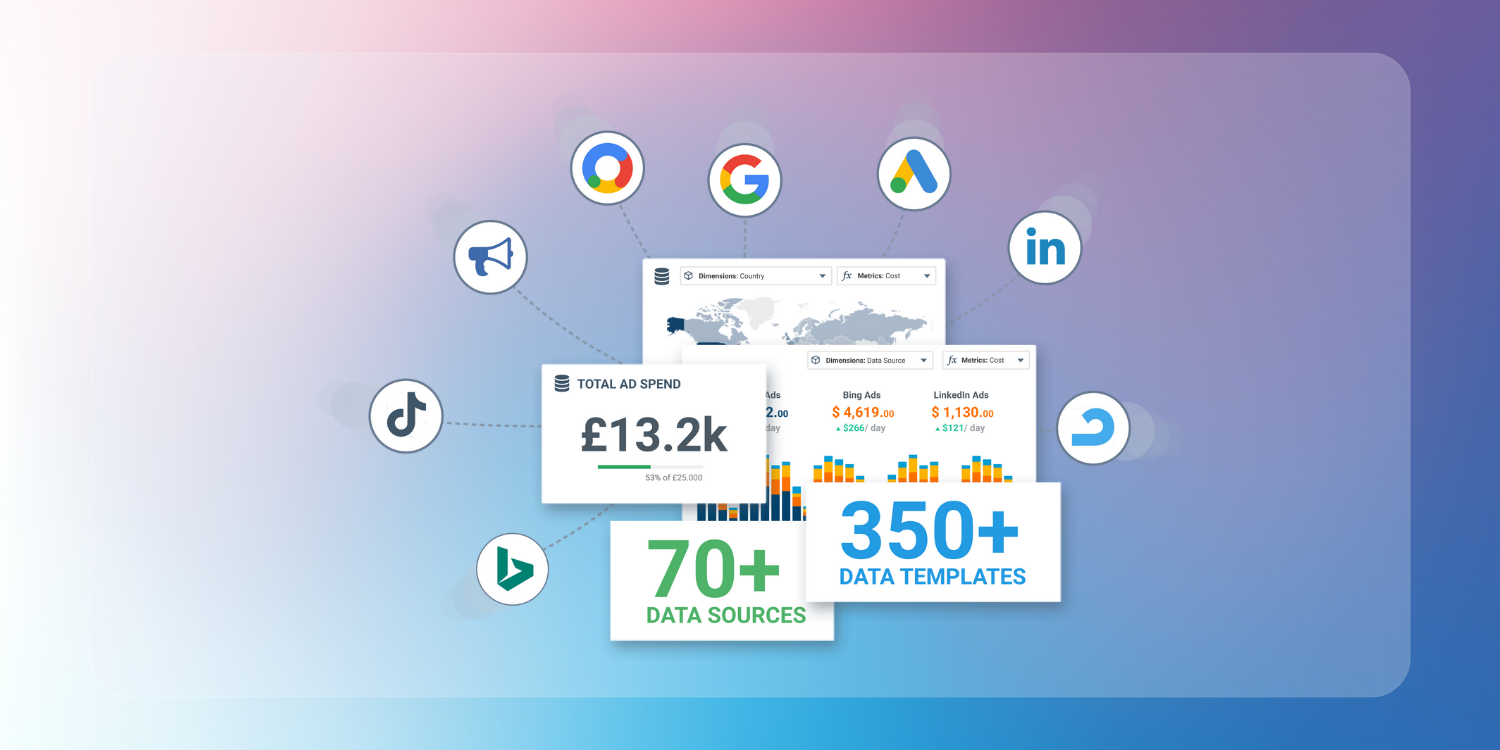
Choosing the right reporting tool and connecting it to various data sources enables a holistic view of SEO performance, empowering data-driven decision-making. Configuring automated data collection involves API connections, data refresh intervals, and data cleansing rules to standardize information. Prioritizing data security and compliance guarantees that clients' data is stored securely and handled responsibly.
Efficient automated data collection processes are essential for marketing agencies to deliver timely, accurate, and actionable SEO reports. By leveraging Octoboard's platform, agencies can streamline reporting, enhance data accuracy, and provide valuable insights to help clients optimize their digital strategies.
Choosing the right visualization types is crucial in SEO reporting to effectively convey data insights. Line charts are great for trend analysis, bar charts for metric comparisons, pie charts for metric distribution, and heatmaps for user behavior visualization.
Ensuring clarity and simplicity in visualizations helps avoid information overload and aids in easy data comprehension. Using color codes, labels, and annotations can spotlight critical points and enhance data understanding.
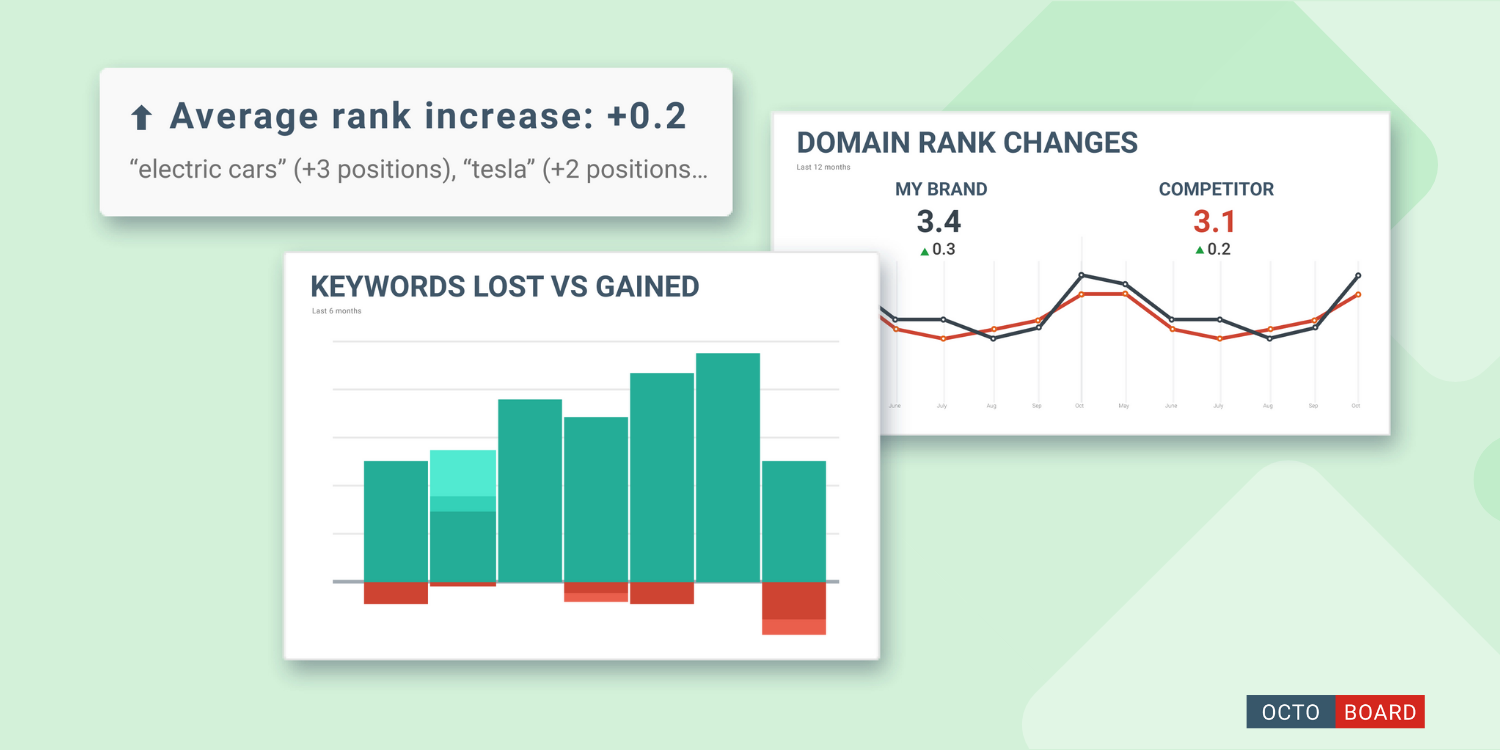
Aligning visualizations with key metrics relevant to the client's objectives is essential. Select KPIs like organic traffic growth, keyword rankings, conversion rates, or backlink profile and emphasize them in the visualizations for client-focused insights.
Adding interactive features like tooltips and drill-down options can elevate the client's engagement and facilitate a deeper exploration of the data. Boosting interactivity in visualizations empowers clients to extract more actionable intelligence.
Maintaining a consistent design throughout the visualizations in SEO reports promotes a cohesive and professional look. Consistent use of colors, fonts, labels, and formatting aids in easy navigation and understanding of the data.

Leveraging visual storytelling can enhance the impact of the data presented in SEO reports. Crafting a narrative structure around the data helps in communicating SEO performance, challenges, and opportunities effectively to the client.
Competitor analysis plays a vital role in SEO strategy. It allows you to assess your standing in comparison to competitors, spot keyword opportunities, and enhance your link-building efforts. By incorporating competitor analysis into your SEO reports, you gain valuable insights for strategic decision-making.
When conducting competitor analysis, focus on key metrics like keyword rankings, organic traffic, backlink profiles, social media presence, and content strategy. Tools such as SEMrush, Ahrefs, and SpyFu provide comprehensive features to aid in this analysis.
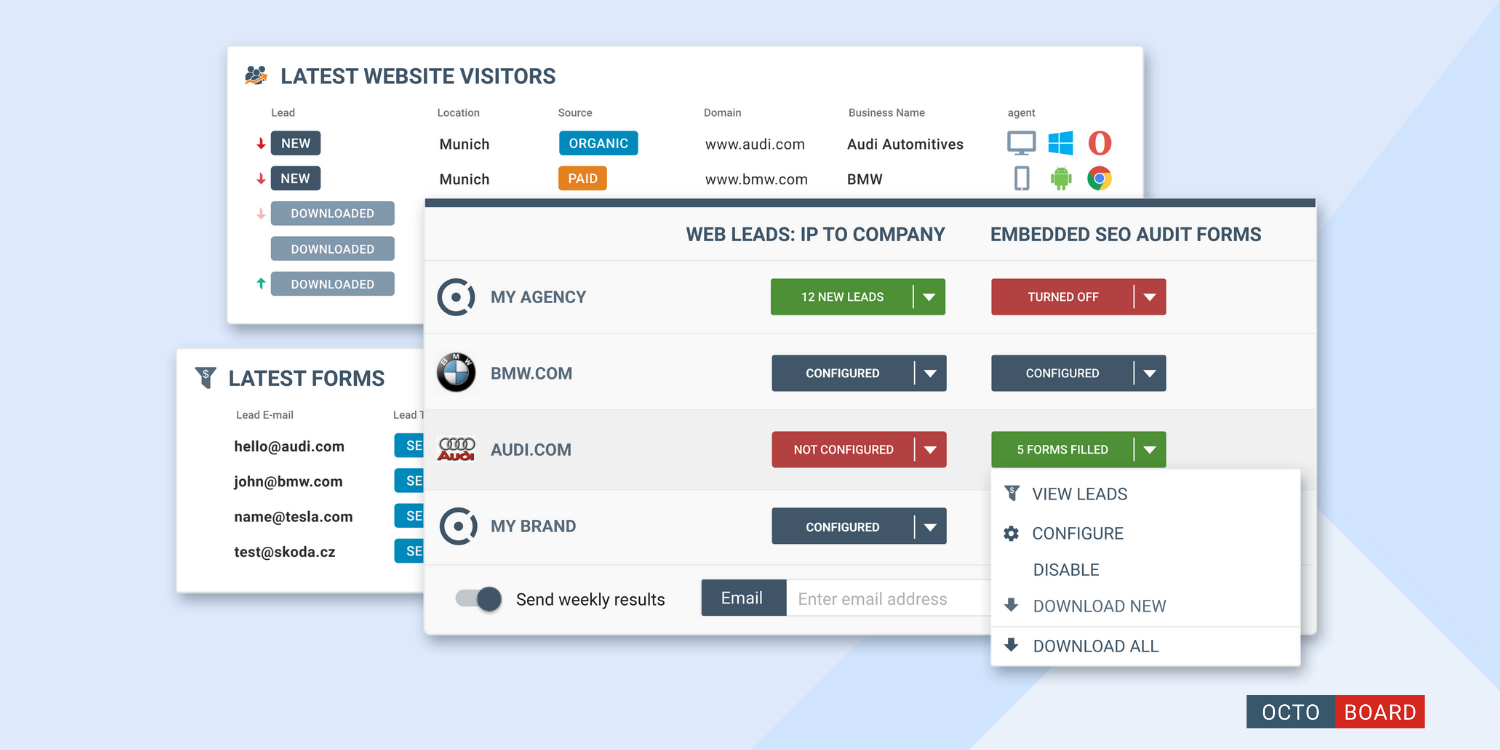
By utilizing competitor analysis insights, you can refine your keyword strategy, enhance your content plan, strengthen your backlink profile, and stay updated with industry trends. Benchmarking against competitors helps you understand your position and make necessary improvements to drive success in the competitive SEO landscape.
Keyword tracking is essential for evaluating the effectiveness of SEO strategies. By monitoring keyword visibility, ranking positions, search volume, and competition levels, insights into driving traffic and conversions can be obtained.
Tracking keyword performance helps in measuring the success of SEO campaigns, identifying trends, optimizing content, and staying competitive within the search results. Tools like SEMrush, Ahrefs, and Moz, as well as Google Search Console and Analytics, play a vital role in effective keyword performance tracking.
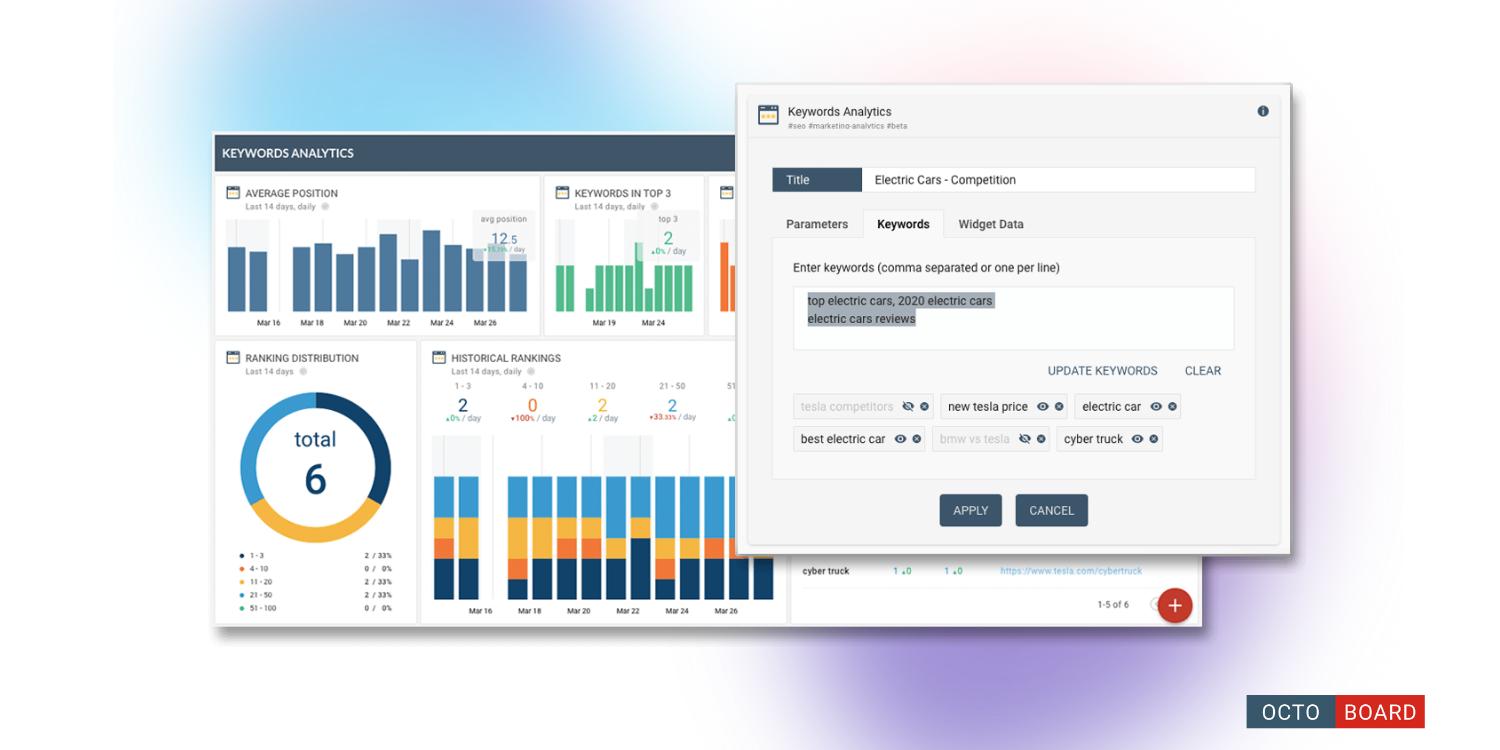
Setting clear goals, monitoring keyword performance regularly, and analyzing the data are key best practices. By defining objectives and KPIs, monitoring trends consistently, and deriving insights from the data, businesses can ensure that their SEO strategies are on track and driving meaningful results.
Organic traffic and keyword rankings are essential metrics for evaluating SEO performance. By tracking these metrics, marketers can gain insights into the effectiveness of their strategies. Organic traffic shows the number of visitors from search engine results. Keyword rankings indicate a website's visibility for specific terms.
To effectively analyze organic traffic and ranking reports, marketers can leverage tools like Google Analytics, Google Search Console, Ahrefs, SEMrush, Moz, and Octoboard. These tools offer comprehensive reporting and analytics capabilities, enabling marketers to make data-driven decisions to improve SEO strategies.
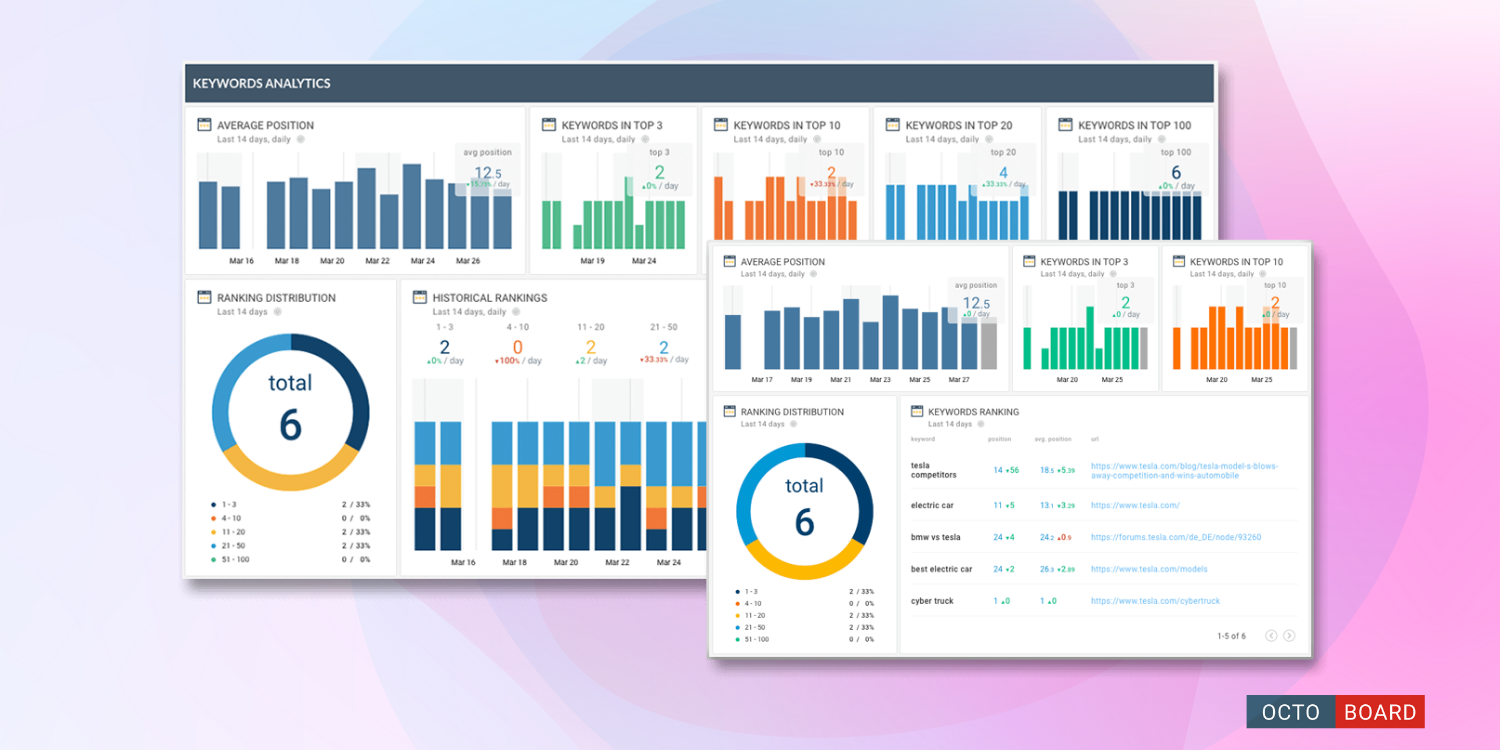
Key metrics to pay attention to in these reports include total organic traffic, organic traffic sources, top-performing keywords, keyword rankings, traffic trends, and conversion rates. By monitoring these metrics, marketers can make informed decisions to optimize their SEO efforts efficiently.
These reports offer numerous benefits for marketing agencies and their clients. They provide a clear measurement of performance, helping agencies demonstrate the impact of their SEO strategies. By analyzing the reports, agencies can optimize their strategies, enhance client communication, conduct competitive analysis, and drive business growth and success.

Backlinks are vital for SEO success as they influence a website's credibility and search engine ranking. They act as virtual upvotes, signaling authority to search engines. Link building involves acquiring backlinks from external sites to improve visibility and rankings in search results.
Key factors to consider when analyzing backlinks and strategies:
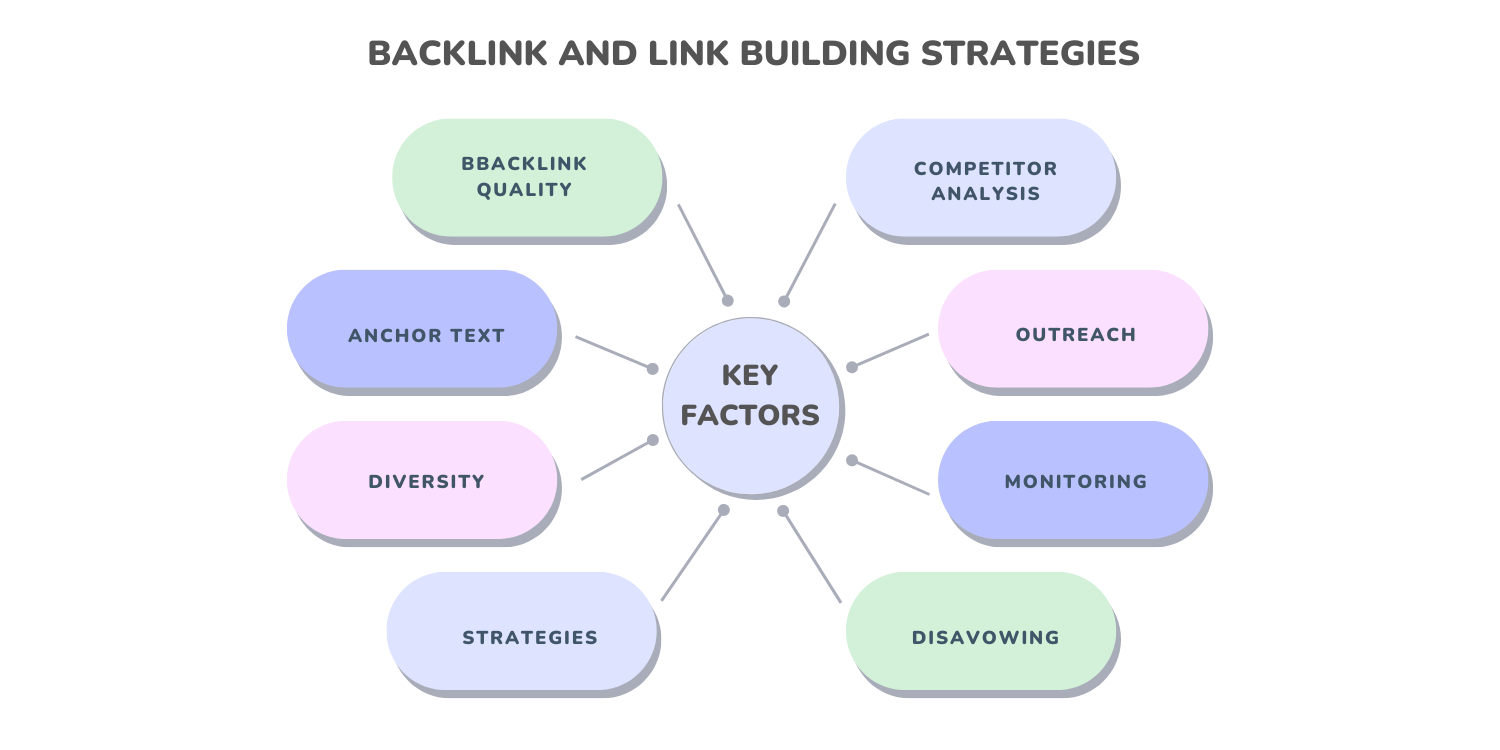
1. Backlink Quality: Focus on acquiring links from reputable and relevant websites.
2. Anchor Text: Use relevant anchor text with targeted keywords.
3. Diversity: Aim for a mix of backlink types to avoid appearing spammy.
4. Strategies: Evaluate current tactics like guest blogging and influencer outreach.
5. Competitor Analysis: Identify link building opportunities by analyzing competitors' profiles.
6. Outreach: Build relationships for acquiring valuable backlinks.
7. Monitoring: Regularly track new backlinks and address toxic ones promptly.
8. Disavowing: Use Google's Disavow Tool to request exclusion of harmful backlinks.

Consistent analysis and optimization of backlink profiles can enhance a site's authority and visibility in search results. Effective link building is a long-term investment for SEO success. By employing the right tools and strategies, sustainable growth in organic traffic and rankings can be achieved.
On-page SEO focuses on content and website elements directly impacting search engine rankings. Key metrics include keyword optimization, content quality, meta tags, page load speed, and mobile responsiveness.
Off-page SEO aims to build authority through factors like backlinks, social signals, and brand mentions. Metrics to track are backlink profile, referral traffic, social signals, and brand mentions.
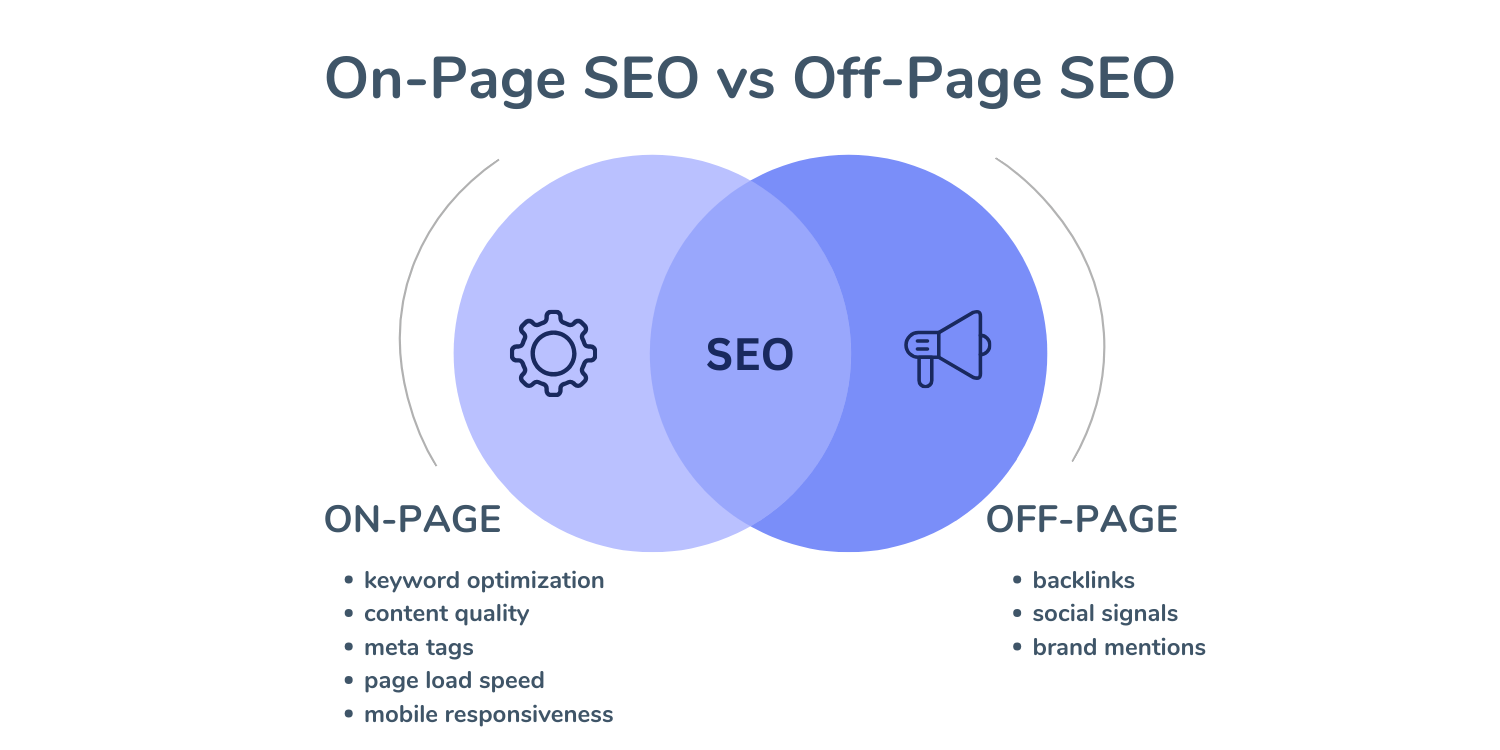
Integrating on-page and off-page SEO analysis in reports provides a holistic view. Correlating data from various sources unveils insights for informed decision-making and strategic planning.
Measuring the effectiveness of both on-page and off-page SEO strategies is essential for optimizing website visibility and driving organic traffic. By tracking key metrics related to content optimization, backlink acquisition, and social engagement, agencies can demonstrate the impact of their SEO efforts and provide actionable recommendations for improvement.
When analyzing SEO, focusing on technical aspects is vital. Through SEO audits, understanding a website's technical health is key to enhancing its search engine performance. Issues like broken links, duplicate content, and meta tag misuses can hinder crawlability and indexing. Assessing these areas and suggesting solutions in SEO reports is crucial for addressing these challenges effectively.
Improving speed and performance is another critical factor in technical SEO audits. Slow-loading pages result in high bounce rates and lower rankings. Responsible for this are factors like server response times and image compression. Including speed optimization tactics in reports aids in improving user experience and maximizing SEO potential.
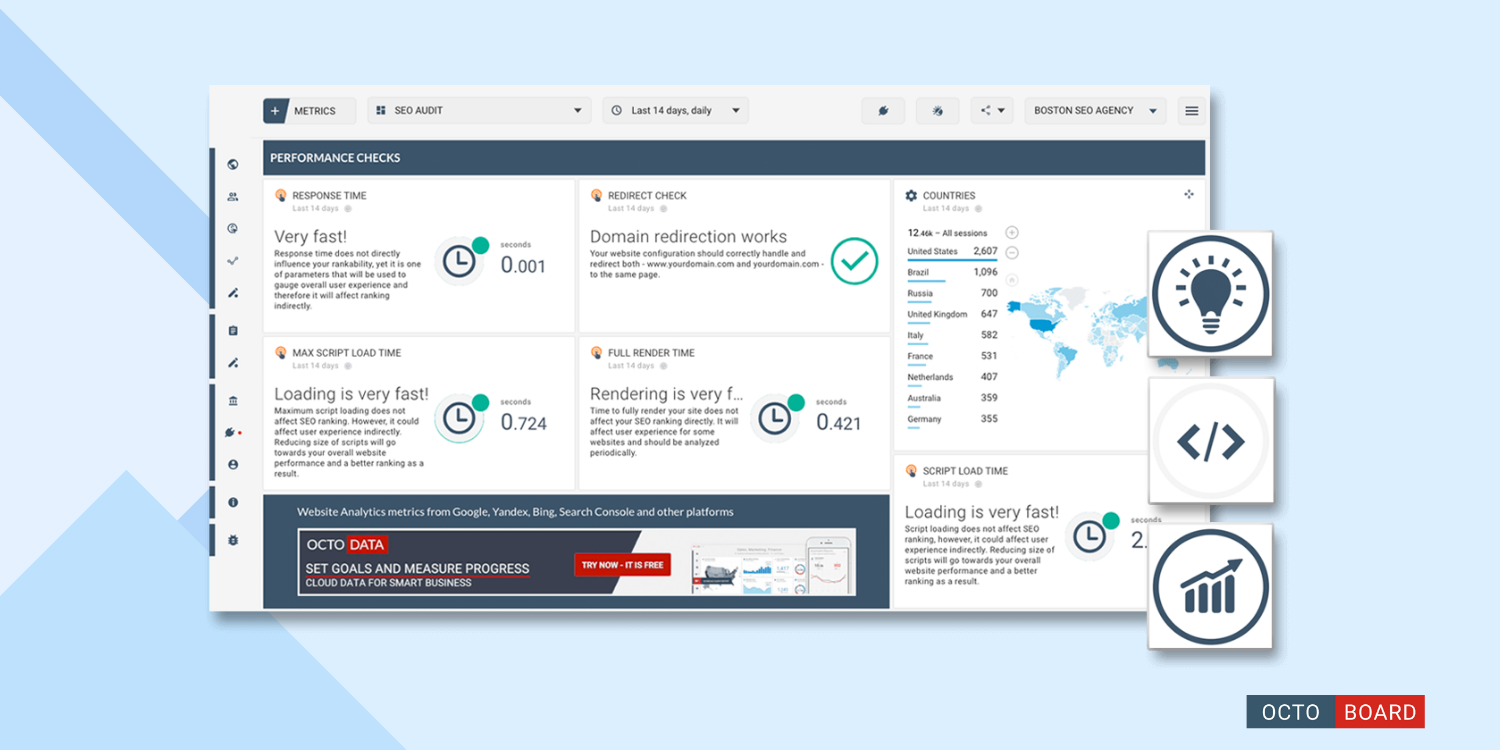
Evaluating mobile-friendliness is equally important in technical SEO audits. With the rise in mobile browsing, having a mobile-responsive website matters. Analyzing mobile page speed and usability uncovers areas for mobile optimization. Providing mobile-friendliness advice in reports helps cater to mobile users and boost search engine visibility.
Website architecture and navigation are also focal points in technical SEO audits. Well-structured websites with logical navigation ease user experience and search engine crawling. Assessing internal linking, URL structure, and site hierarchy offers recommendations for optimizing architecture. Advice on site architecture and navigation in reports enhances site organization and user experience.

Addressing security measures and schema markup forms another aspect of technical SEO audits. Secure websites with HTTPS encryption and schema markup for rich snippets affect user trust and rankings. Recommendations on security and schema markup in reports strengthens website security and boosts visibility and credibility.
Incorporating technical SEO audits and suggestions in reports provides clients with a holistic view of their SEO performance. Recommendations on crawlability, speed, mobile-friendliness, architecture, security, and schema markup empower clients to make informed decisions and implement effective strategies for improving SEO performance.
Automating report delivery and scheduling brings significant advantages to marketing agencies and SEO professionals, saving time and ensuring consistent reporting to keep clients informed. By automating systems for report generation and delivery, you can focus more on analysis and strategy rather than manual tasks.
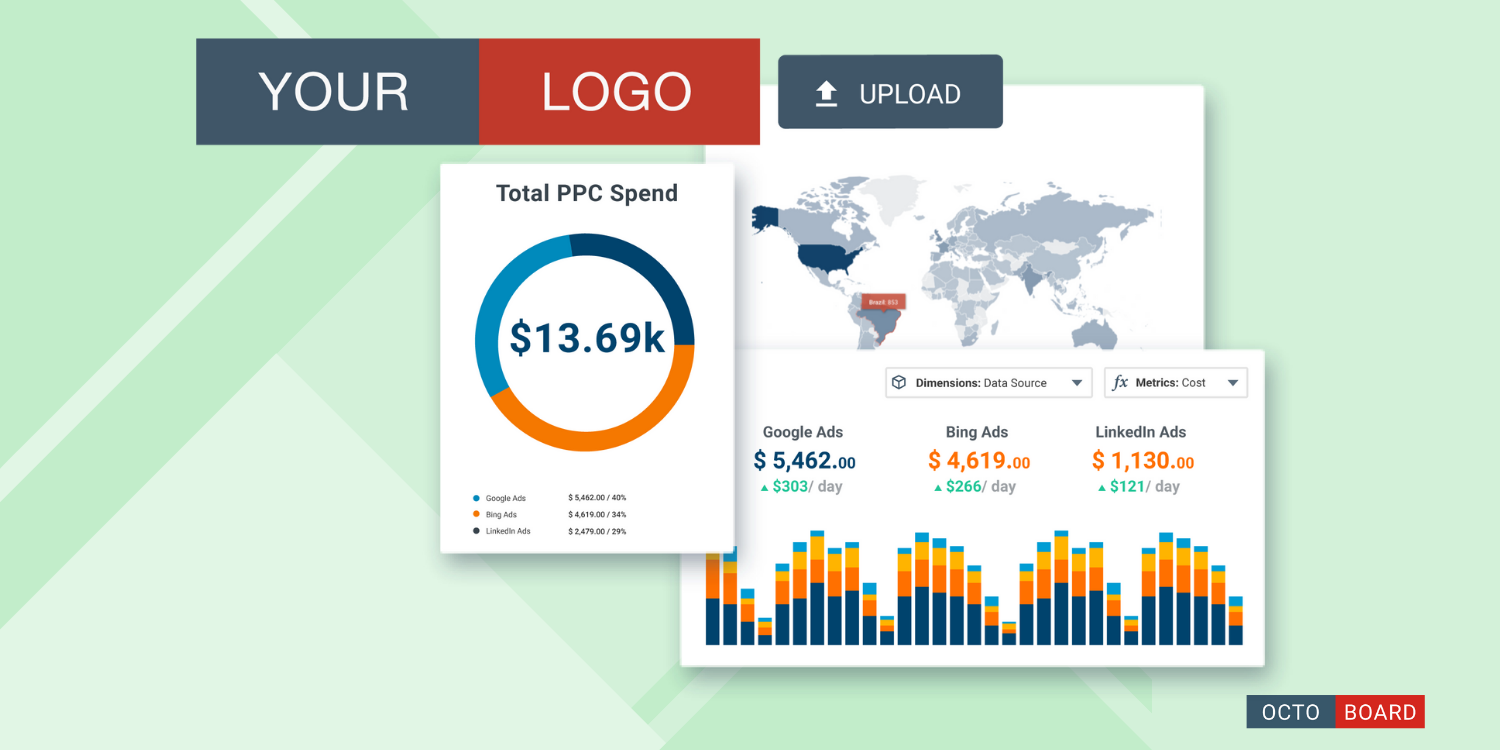
Efficiency is a key benefit of automation, eliminating the need for manual data compilation and formatting while reducing the risk of errors. Consistent report delivery builds trust with clients and showcases professionalism. Timely reports can be scheduled at predefined intervals, keeping clients up-to-date with their SEO performance.
Scalability is another advantage, as automated systems allow for handling increased workloads without compromising quality. Regular and timely reporting keeps clients engaged, informed, and satisfied with the progress of their SEO campaigns. Automation also promotes transparency and open communication between you and your clients.
To effectively automate report delivery and scheduling:
1. Choose a powerful SEO reporting tool like Octoboard.
2. Determine the reporting frequency based on client preferences.
3. Customize report templates with relevant metrics and visualizations.
4. Integrate data sources from Google Analytics, Search Console, and other platforms.
5. Configure automated alerts for significant performance changes.
6. Set up automated scheduling for report delivery.
7. Review reports for accuracy and clarity before sending them out.
8. Follow up with clients to discuss findings and provide recommendations.

By automating report delivery and scheduling, you can streamline your SEO reporting process, enhance efficiency, and improve client satisfaction. This approach allows you to focus on strategic decision-making and delivering tangible results for your clients.
Client communication in the realm of search engine optimization (SEO) reporting is crucial. Providing clear, concise, and actionable insights can demonstrate the value of your services and build trust with your clients. Let's delve into the significance of enhancing client communication through actionable insights in your SEO reports.
Furnishing actionable insights is key in client communication. Clients count on your expertise to guide them towards making informed decisions to bolster their online visibility and drive organic traffic.
To enhance client communication:
- Contextualize Data: Explain the importance of metrics, their impact on website performance, and suggest actions for improvement.
- Focus on Key Metrics: Highlight essential Key Performance Indicators (KPIs) to make progress tracking seamless.
- Visualize Data: Use charts, graphs, and infographics for easier data comprehension.
- Simplify Language: Avoid technical jargon and explain complex concepts clearly.
- Offer Recommendations: Provide actionable suggestions for clients to enhance their SEO performance.
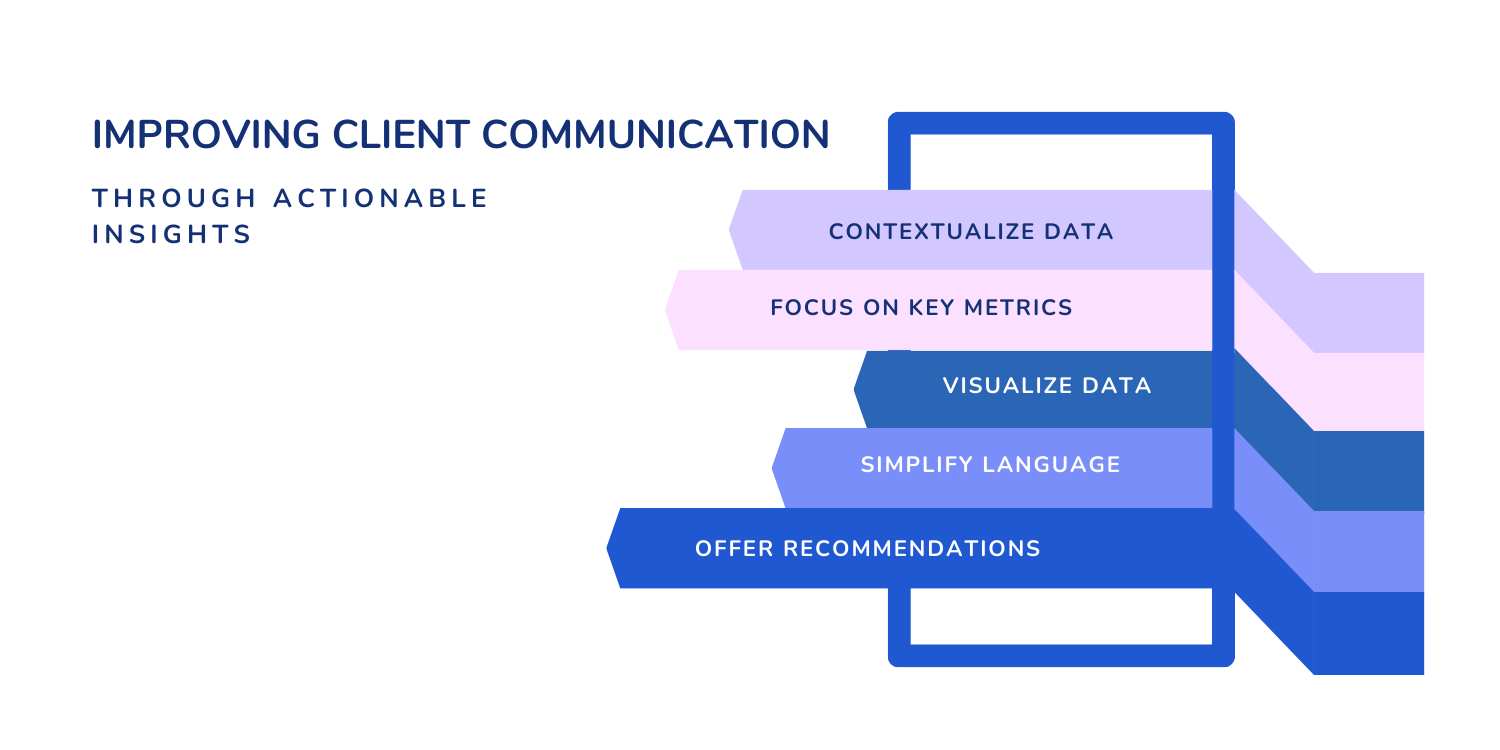
Automating SEO reporting processes can be a game-changer. Tools like Octoboard enable automated report scheduling, personalized templates, and real-time data updates for timely and relevant information delivery. This not only saves time but also ensures consistent reporting practices, with customized insights for each client.
